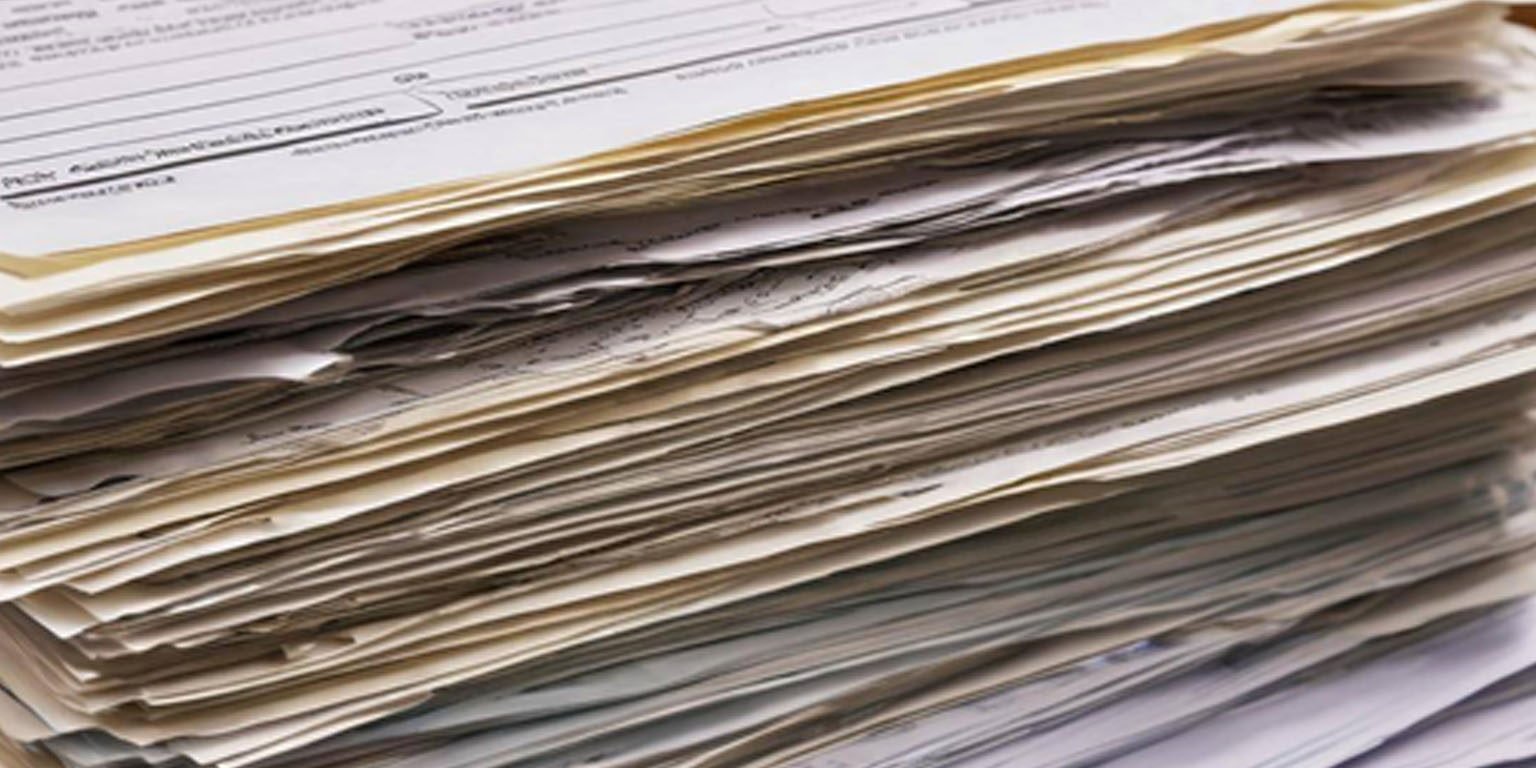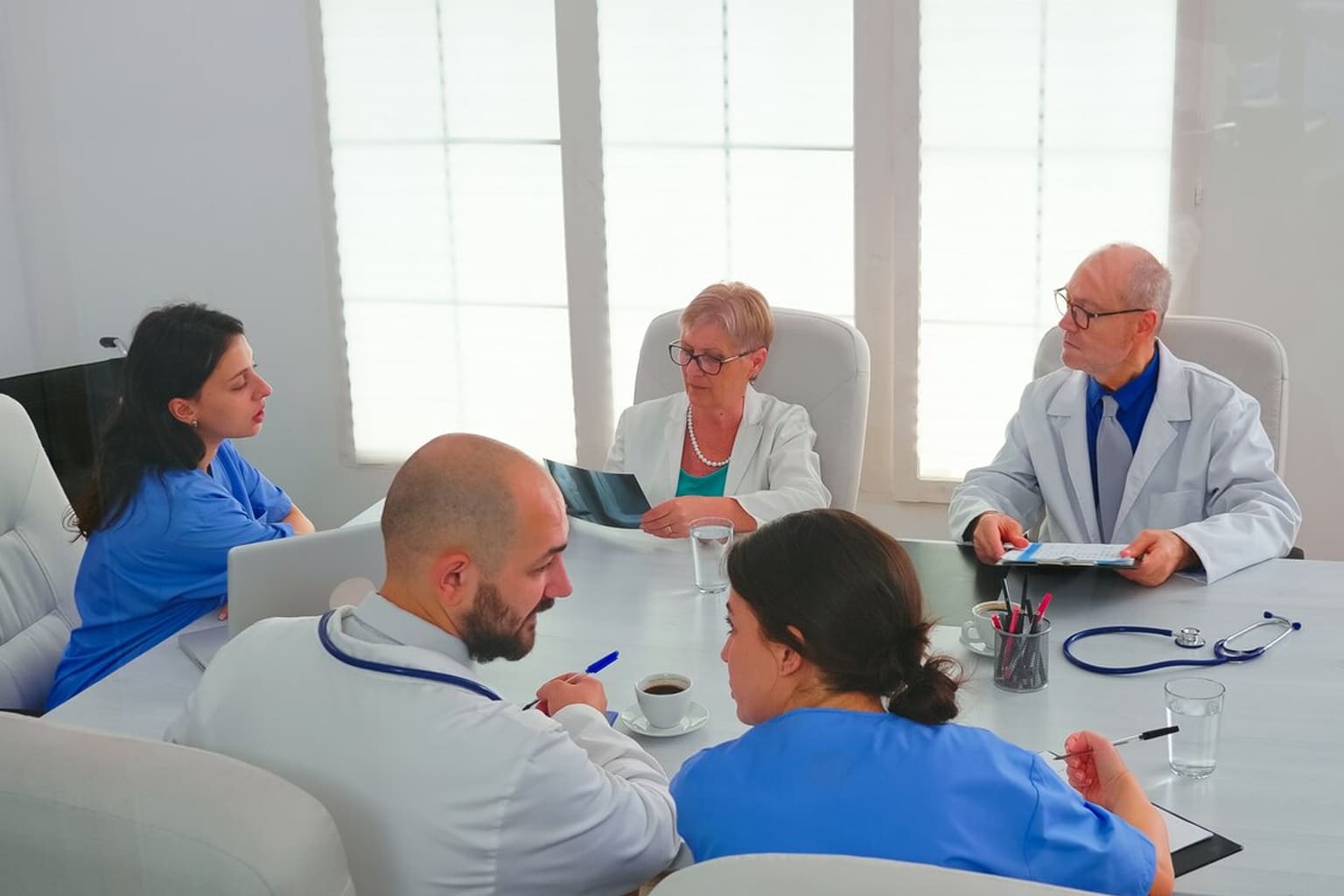Gathering Medical Negligence Evidence in Ireland: A Comprehensive Guide
Gathering evidence for a medical negligence claim in Ireland entails more than just collecting medical records. It's crucial to establish that the healthcare provider didn't meet the standard care criteria, leading to harm. This involves elaborately documenting every minute detail, understanding the expected standard in that specific medical situation, and lucidly showcasing the healthcare provider's failure to deliver. With this strategic assembly of proof, your case will be fortified. Time now to delve into specifics.
The crucial steps for gathering medical negligence evidence in Ireland involve collecting comprehensive medical records, obtaining expert opinions, and securing witness statements. Additionally, it is important to consult with a solicitor experienced in medical negligence cases to ensure that all necessary evidence is gathered effectively.
Identifying Neonatal Brain Injury in Ireland
Neonatal brain injuries are complex and might not always show immediate symptoms. In some cases, however, they can manifest through seizures, difficulty feeding, abnormal reflexes, and developmental delays. These symptoms can be distressing for parents as they signal something is wrong with their child. However, it's essential to remember that these symptoms can also be caused by a range of other conditions. Therefore, it's crucial to have a thorough assessment by medical professionals to diagnose and understand the nature of the issue accurately.
In Ireland, identifying neonatal brain injury often involves a multidisciplinary approach because it covers various possible causes and symptoms. In some instances, medical negligence during childbirth and the neonatal period can result in brain injury. This makes identifying the cause of the injury critical for families to fully understand their legal options.
An example of this is oxygen deprivation during birth, which is a leading cause of neonatal brain injury. When this occurs due to medical negligence or improper monitoring during labour, it becomes imperative for parents to recognise the signs and seek legal counsel to understand their rights in such situations.
Medical practitioners play a crucial role in identifying neonatal brain injuries. They must conduct thorough assessments of infants who exhibit any concerning symptoms related to brain injury and provide accurate diagnosis and treatment options.
As we move forward in this article, we aim to shed light on the complexities of identifying neonatal brain injuries and explore the legal options associated with these cases in Ireland. By doing so, we hope to provide comprehensive guidance to families navigating this challenging situation.
Understanding the legal rights of families affected by neonatal brain injury is paramount in ensuring appropriate support and redress. Now, let's embark on an exploration of the legal landscape for these families in Ireland.
The Process of Proving Medical Negligence
Proving medical negligence is no small task. It involves deeply examining the intricate web of medical standards and practises to showcase that a healthcare provider failed in their duty of care, resulting in harm to the patient.
To start, it's crucial to understand the standard of care expected in a specific medical situation. Different medical procedures and treatments come with varying expectations, and it's important to establish what reasonable care and treatment entail in each unique case. This standard isn't just a vague idea—it has to be backed up by recognised medical principles and practises that are accepted within the relevant medical community.
Once this standard is defined, the focus shifts to providing evidence that the healthcare provider failed to meet this standard, ultimately causing harm. This part can involve a deep dive into medical records, expert opinions, and testimonies from both medical professionals and the affected patients.
For instance, gathering medical records is often crucial in establishing what actions were taken (or not taken) by the healthcare provider. These records can reveal if there was any deviation from the accepted standards of care, perhaps due to a misdiagnosis, medication errors, or surgical mishaps.
Consider an instance where a surgeon fails to follow proper protocol during a surgery, leading to post-operative complications for the patient. This is why accurate and thorough documentation is crucial in highlighting potential breaches of duty of care.
Expert medical opinion plays a critical role as well. Expert witnesses, who specialise in the same field as the defendant healthcare provider, can provide detailed insights into whether there was indeed a deviation from the standard of care. Their testimony holds significant weight in illustrating how the provider's actions fell short of what was expected.
Furthermore, testimonies from affected parties can also contribute powerfully to proving medical negligence. Patients and their families can share their firsthand experiences regarding the care received and its outcomes, shedding light on any lapses in meeting the expected standard of care.
In summary, proving medical negligence involves meticulous scrutiny of medical standards, gathering substantial evidence, involving expert opinions, and leveraging firsthand accounts to demonstrate deviations from expected standards of care that ultimately resulted in harm to the patient.
With a solid understanding of the process involved in proving medical negligence, let's now shift our focus to emphasise the critical importance of documentation and record-keeping in these cases.
Importance of Documentation and Record Keeping
When it comes to building a case for medical negligence, thorough documentation is the cornerstone of a successful claim. Accurate and complete medical records serve as crucial evidence detailing treatments, medications, surgeries, and communication with healthcare providers. Each entry should be clear and comprehensive, leaving no room for misunderstanding or misinterpretation. These records provide a timeline of events invaluable in understanding the progression of your medical care.
Keeping detailed medical records also ensures that nothing gets overlooked or forgotten, offering context and clarity when assessing the sequence of events leading up to and following an instance of potential medical negligence. Each entry could hold significant weight in supporting the validity of your claim.

The Role of Personal Journals
In addition to official medical records, keeping a personal journal can greatly enhance the evidence collection process. Personal journals offer the opportunity to record personal experiences, symptoms, and interactions with healthcare providers. They provide valuable context and timelines that supplement official medical records.
While medical records provide an objective account of your treatment, personal journals offer a subjective perspective shedding light on the emotional and physical toll of the experience. This additional insight provides a more comprehensive understanding of the impact of potential negligence on your life. Furthermore, personal journals capture details that may not have been recorded in official medical documents, providing a holistic view of your journey.
For instance, if you experienced adverse side effects from medication inadequately addressed by your healthcare provider, documenting these experiences in a personal journal can strengthen your case. It provides a firsthand account of the impact that negligence had on your well-being throughout your journey.
Recording your thoughts and feelings throughout your medical journey is not only beneficial for your own understanding but also serves as vital evidence when building a case for medical negligence. Every piece of detail matters when seeking justice.
In essence, both official medical records and personal journals play pivotal roles in assembling a robust collection of evidence to support your claim of medical negligence. Each piece contributes to painting a comprehensive picture of your experience and treatment history, strengthening your position when seeking legal recourse.
Eyewitness Accounts in Medical Negligence Cases
In many medical negligence cases, eyewitness accounts are pivotal in substantiating the patient's claims. These accounts are testimonies provided by individuals who were present during the medical procedure or treatment, offering unique perspectives and firsthand observations to establish the sequence of events leading up to the alleged medical negligence.
When seeking out eyewitness accounts, it's important to understand that these individuals may have witnessed critical moments during the medical treatment. For example, a nurse who noticed a doctor administering the wrong medication, a family member who observed a surgical error, or a fellow patient who saw a misdiagnosis take place. Their testimony can provide valuable insights and corroboration for the claim being made.
For instance, a patient undergoing surgery suffers complications due to a surgeon's error. An eyewitness account from a nurse or surgical assistant present in the operating room can provide details about any deviation from standard procedures, overlooked safety protocols, or any other crucial information that contributed to the patient's injury.
The inclusion of eyewitness accounts helps build a comprehensive narrative of the events and supports the patient's claim by providing objective evidence from additional perspectives.
Eyewitness accounts not only shed light on crucial moments during medical procedures but also offer valuable insights into potential instances of medical negligence. As we further explore this aspect, it becomes evident that eyewitness accounts are essential in strengthening the evidentiary foundation for medical negligence claims.
Role of Expert Medical Opinions
Picture this - you're entangled in a complex situation involving a medical negligence claim. You have your own perspective on what occurred, and the healthcare provider has theirs. In such instances, it is crucial to enlist the help of an expert, someone who thoroughly understands the precise medical procedures and standards at play. Expert medical opinions can carry significant weight in these cases as they add a crucial layer of professional analysis and judgement.
When it comes to medical negligence litigation, expertise is paramount. These individuals have considerable experience and are often specialists in the same field as the healthcare provider under scrutiny. Primarily, their role is to assess the treatment provided to the patient, compare it to the accepted standard of care within that medical specialty, and identify any deviations or failures in meeting those standards. They then provide their professional opinion on how these deviations led to the patient's injury or worsened their condition.
For instance, if a surgeon is accused of performing a procedure negligently, a qualified and experienced surgeon would be asked to review the case. This expert would carefully examine the details of the treatment provided, consider the patient's medical history, and evaluate whether the actions taken by the surgeon aligned with established medical protocols. If they determine that there were indeed deviations from these protocols and that these deviations resulted in harm to the patient, their expert opinion can be a compelling confirmation of medical negligence.
It's important to understand that securing an expert medical opinion involves more than just finding any medical professional to support your claim. The expert must possess a high level of expertise relevant to the particular treatment or procedure in question. Their opinion should be supported by clear reasoning and demonstrate a solid understanding of both standard practises and potential areas of negligence within their field.
Entrusting an experienced professional with this critical task can make all the difference in strengthening your case. Their expert opinion provides an additional layer of authority and credibility, shedding light on whether the healthcare provider's actions fell below acceptable standards, thereby contributing to your injury or worsened condition.
In conclusion, having a qualified professional thoroughly assess the treatment given and provide an informed opinion on whether negligence occurred plays an invaluable role in building a strong case for medical negligence.
How to Present Your Evidence for a Claim
Gathering evidence for a medical negligence claim is only half the battle. The next step is to present this evidence in a clear and coherent manner to ensure it effectively supports your claim. It's crucial to organise and structure all documentation, reports, and witness statements in a way that strengthens your case and makes it easy for the legal authorities to understand. This is the evidence that will be scrutinised during negotiations and potential court proceedings, so its presentation is paramount.
When preparing your evidence, start by creating a clear timeline of events related to the alleged medical negligence. This timeline serves as the backbone of your case and helps establish a chronological sequence of key incidents and actions taken by healthcare providers. By organising information chronologically, you provide a comprehensive overview that allows legal experts to follow the progression of events leading up to the alleged negligence.
For instance, if the negligence involves a missed diagnosis, the timeline should include details such as when the symptoms were first reported, when diagnostic tests were conducted, and when the diagnosis was ultimately made. Additionally, including any subsequent harm or injury caused by the delay in diagnosis strengthens the impact of your case.
In addition to creating a timeline, ensure that all relevant medical records are organised and included in your evidence. These documents provide critical insight into the care provided by healthcare professionals and serve as concrete proof to support your claim.
Furthermore, seek expert opinions from qualified medical professionals who can thoroughly analyse the medical records and provide detailed assessments. Their evaluations are invaluable in establishing whether the standard of care was breached and if the alleged negligence directly resulted in harm or injury.
Additionally, witness statements from individuals who have firsthand knowledge of the circumstances surrounding the alleged negligence, such as family members or other healthcare providers, can provide vital corroboration to strengthen your case.
In presenting your evidence, clarity is key. Clearly label all documents and organise them in a logical sequence for easy reference. This not only streamlines the review process for legal authorities but also reflects a meticulous approach in building your case.
Think of presenting evidence like crafting a compelling story; each piece of evidence acts as a chapter in your narrative, contributing to an overarching plot that substantiates your claims.
By meticulously organising and clearly presenting your evidence, you lay a solid foundation for your medical negligence claim. This strategic approach not only enhances the credibility of your claim but also facilitates a thorough assessment by legal experts.
Now let's address potential challenges faced when compiling and presenting evidence for a medical negligence claim.
Potential Challenges and How to Overcome Them
Medical negligence claims can be challenging due to the complex nature of healthcare and legal systems. Many claimants face the daunting task of proving negligence while also navigating legal procedures. However, understanding these challenges and knowing how to overcome them can make the process smoother and more manageable.
One of the major challenges in medical negligence cases is the statutory time limit within which a claim must be made. In Ireland, the statute of limitations for medical negligence claims is two years from the date of the injury. This limited timeframe can put pressure on claimants to gather evidence, assess their case, and initiate legal proceedings promptly. Failure to meet this deadline can result in the claim being barred.
Additionally, gathering evidence for medical negligence claims can be particularly demanding. Medical records, expert opinions, and other forms of documentation are essential for building a strong case. However, accessing these records and interpreting complex medical information can be difficult for individuals without a legal or medical background.
To overcome these challenges, it's crucial for claimants to seek legal advice as soon as possible after discovering a potential case of medical negligence. A specialised solicitor experienced in medical negligence cases can provide invaluable guidance in navigating these challenges and ensure that important deadlines are not missed.
For instance, a specialised solicitor will have the expertise to access medical records effectively, interpret complex medical information, and collaborate with medical experts to assess the standard of care provided. This support can significantly alleviate the burden on the claimant and contribute to building a compelling case.
Moreover, building a strong case goes beyond just gathering evidence; it requires deep understanding and expertise in navigating the complexities of medical negligence litigation. The intricacies of healthcare regulations, legal standards, and precedents demand thoroughness and precision. A specialised solicitor will possess the necessary knowledge and experience to handle these complexities efficiently.
In conclusion, while medical negligence claims present various challenges, seeking professional legal assistance is key to overcoming these obstacles. Specialised solicitors bring valuable experience, expertise, and resources that can significantly enhance a claimant's ability to address these challenges effectively and build a strong case.


Overcoming the hurdles associated with medical negligence claims requires diligence and expertise. Seeking professional legal assistance is pivotal in addressing these challenges effectively.
Get a Consultation Today! - Call us now at 01 5134687
Gary Matthews Solicitors
Medical negligence solicitors, Dublin
We help people every day of the week (weekends and bank holidays included) that have either been injured or harmed as a result of an accident or have suffered from negligence or malpractice.
Contact us at our Dublin office to get started with your claim today

